We are dedicated to positively impacting people’s lives and communities by providing high-quality homes. We build new homes that meet people’s needs and invest in our existing homes and neighbourhoods to ensure they are well-maintained, comfortable, and safe places to live.
Investment in our existing homes and neighbourhoods
We are committed to maintaining homes to a high standard and creating places where people are proud to belong. That is why each year, we make significant investment in planned maintenance and environmental sustainability works for our homes and their surrounding areas.
This year, we invested £11.9 million to modernise and improve the efficiency of our homes. This included fitting 200 new kitchens, over 300 bathrooms, 430 doors, 100 windows, 170 roofs and over 480 heating systems. Part of this spending was allocated to high-cost works, such as replacing lifts, commercial boilers, and resurfacing car parks.
We also delivered year two of our commitment under the Social Housing Decarbonisation Fund which included upgrading insulation, installing high efficiency heating and new windows to improve the energy efficiency of 100 of our homes.
This year we updated our Asset Management Strategy and Environmental Sustainability Strategy to help us achieve our net zero goal by 2050. These strategies outline our approach to maintaining and managing the safety and quality of our properties and also how we are working to improve energy efficiency.
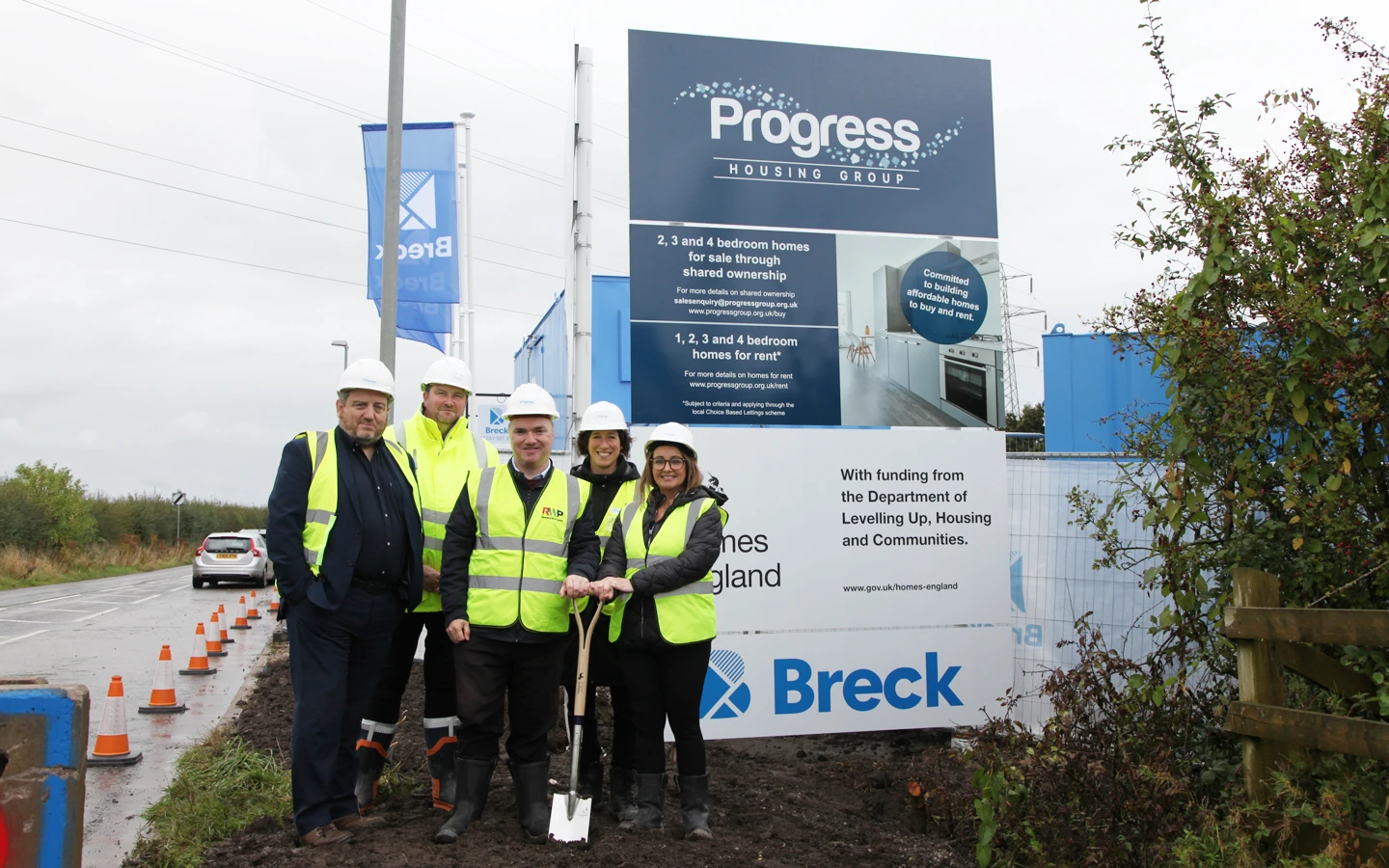
PHG Development Team outside new development in Cottam, Preston.
This year, we invested £11.9 million to modernise and improve the efficiency of our homes.
Responsive repairs
This year, we completed over 60,500 repairs, an increase of 5,500 on the previous year, and spent over £14.3 million on our responsive repairs service.
Listening to our tenants’ views and addressing their concerns about property safety and maintenance is essential for improving our services.
After consulting with tenants and colleagues, we made changes to improve our repair service. As a result, we piloted extended hours for urgent and routine repairs to include Saturday mornings and weekdays until 6pm.
After listening to our tenants and the experience of our specialist teams, we reviewed our main contract for the delivery of our national repairs, voids and planned maintenance service.
We moved from one national contractor to several specialist regional contractors. Consequently, these have all now been procured on long-term contracts following an extensive procurement process. As a result, performance for all our national contractors remains high with 86% of non-emergency repairs and 86.3% of emergency repairs completed on time.
We value tenant feedback, which helps us make changes that address tenant needs and concerns. This has improved our repairs service, increasing tenant satisfaction from 86.3% to 88.4%.
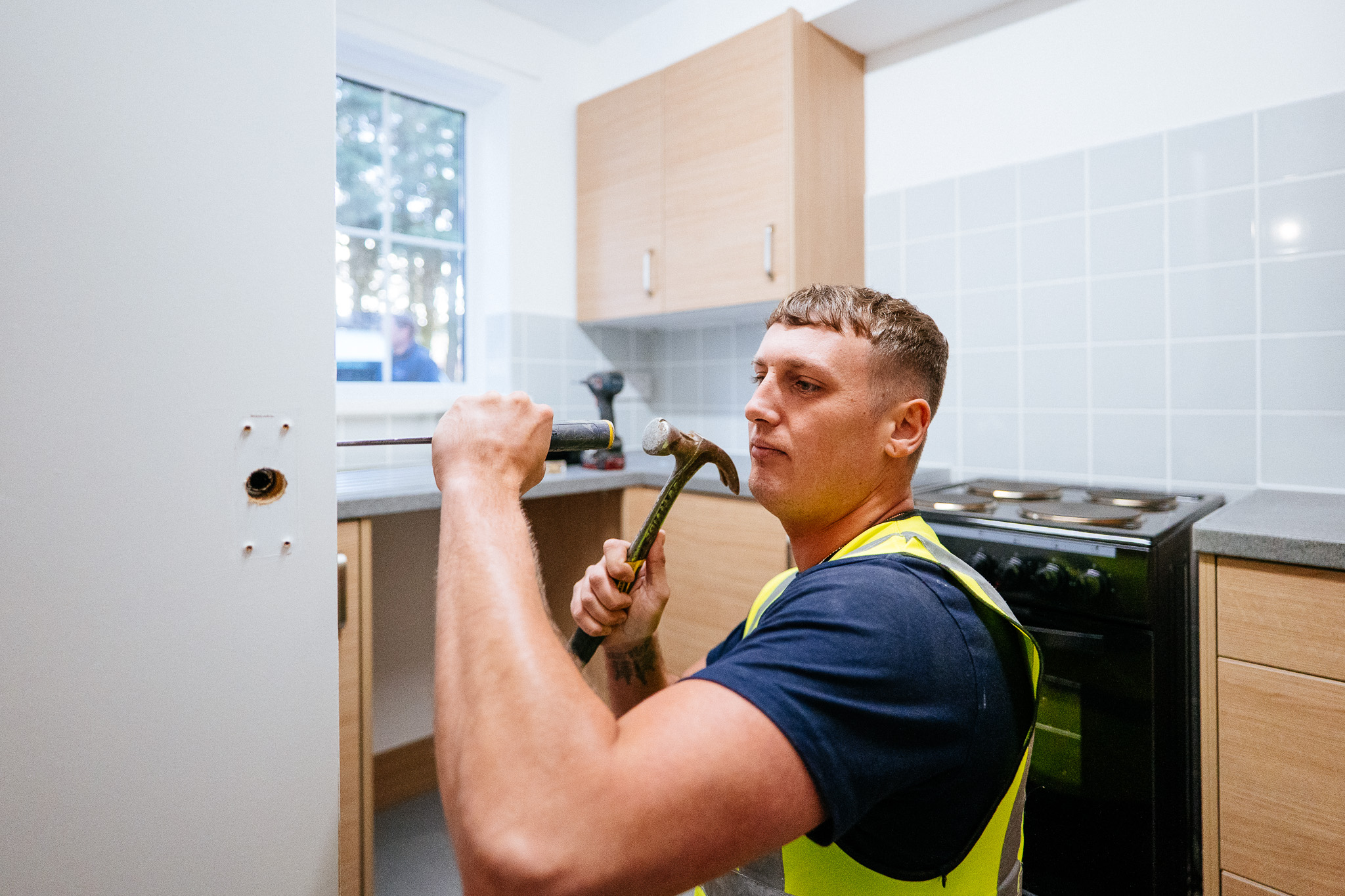
This year we completed over 60,500 repairs to make homes are safe and well-maintained.
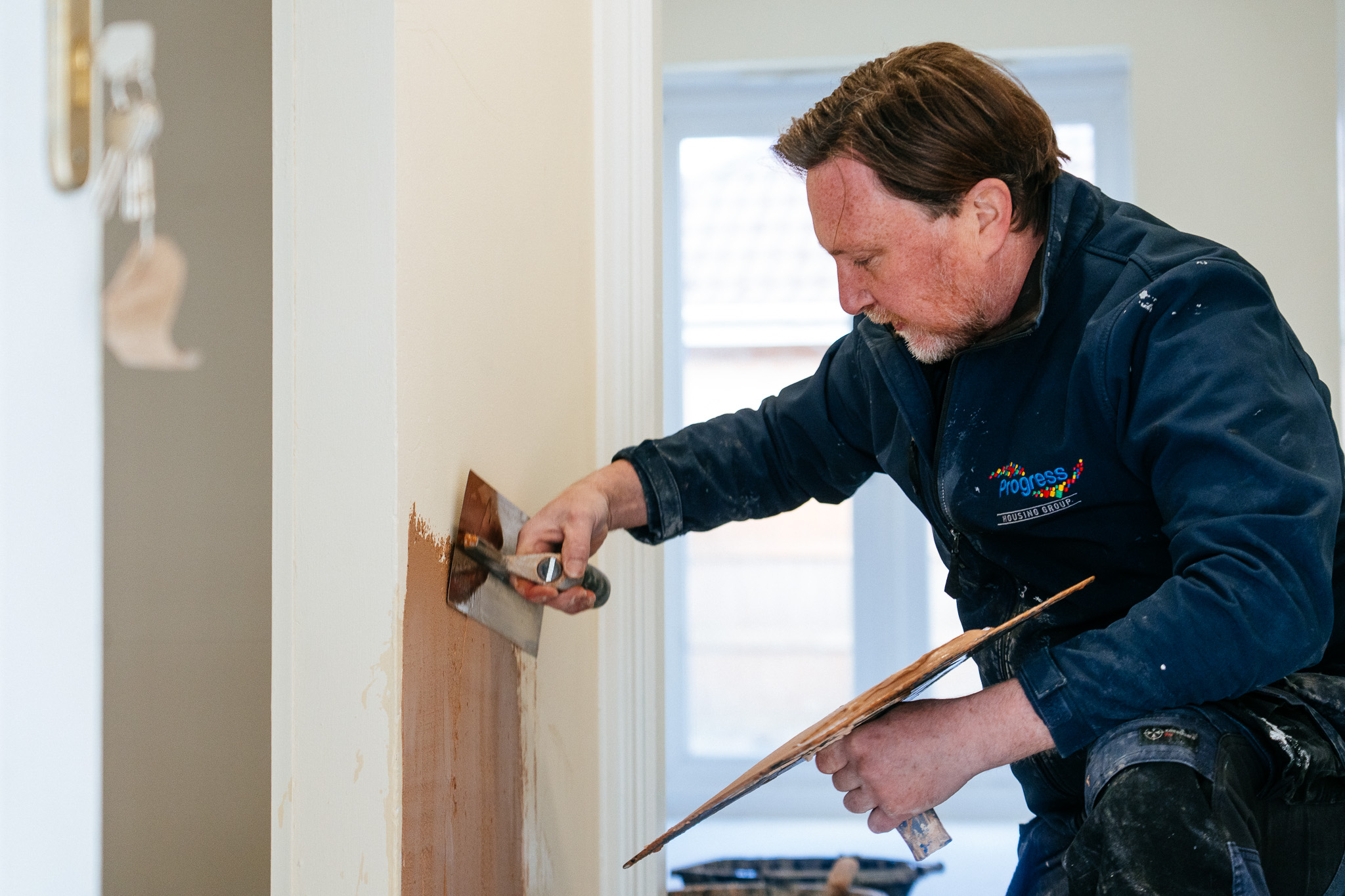
Performance for all our national contractors remains high with 86% of non-emergency repairs and 86.3% of emergency repairs completed on time.
We invested over £41.8 million into repairs, maintenance and compliance works, including energy efficiency improvements.
A proactive approach to managing damp and mould
Following the government’s response to the tragic death of Awaab Ishak, several key pieces of guidance and legislation have come into effect to improve how social housing landlords address and resolve issues of damp and mould in tenants’ homes.
This includes the publication of the Regulator of Social Housing’s report on damp and mould in June 2023, with the phased introduction of Awaab’s Law in October 2025.
These changes form a new era of regulation for the social housing sector, aiming to give tenants greater powers and improve access to quick and fair solutions to problems.
There has been a continued demand in requests for damp and mould property inspections this year.
This year, our Healthy Homes Team completed 2,860 inspections, prioritising properties with reports of damp and mould concerns and completing full risk assessments of our empty properties. This resulted in 1,524 cases logged in 2024/25. Some 53% of all cases relate to damp or mould, with the remaining top three hazards being risk of structural collapse and falling items, and risk of excess cold due to inefficient heating and insulation. Each of these cases are tracked and repairs are monitored through to completion with a follow up inspection undertaken where a hazard is identified. Tenant satisfaction with healthy homes related works was 93% for the year. Damp and mould complaints equated to around 4% of our total complaints with each one followed up and investigated. We aim to be responsive and proactive in tackling any issues of damp, mould, or disrepair, and continually work to strengthen our response to ensure the ongoing safety of our tenants and their homes.
Independent living and Extra Care
We have 30 independent living schemes across South Ribble and the Fylde coast for people over 55. Each scheme offers self-contained apartments, communal facilities, support from an independent living coordinator, and 24-hour emergency assistance.
This year, we have continued to invest in and improve our independent living offer, responding to older people's changing needs and aspirations. We have also focused heavily on tenant feedback and collaboration.
We have started an ambitious 10-year programme to refurbish all our independent living schemes to include decoration, flooring and furnishing where required, in consultation with tenants. This project involves close collaboration between our Independent Living and Asset Management teams, and also external contractors.
In partnership with our tenants, we have created a plan to improve grounds maintenance, window cleaning, laundry facilities, social activities, heating systems and scooter storage. This plan was developed based on direct feedback from tenants to ensure that their input is central to our service enhancements.
Our first purpose-built Extra Care scheme in Lancaster is progressing well on-site and will deliver 92 high-specification one and two-bedroom homes for those aged 55 and over in 2025. Tailored care and support packages will be available to help tenants live independently. This is part of our commitment to transforming the provision of independent living and accommodation for those with Extra Care needs.
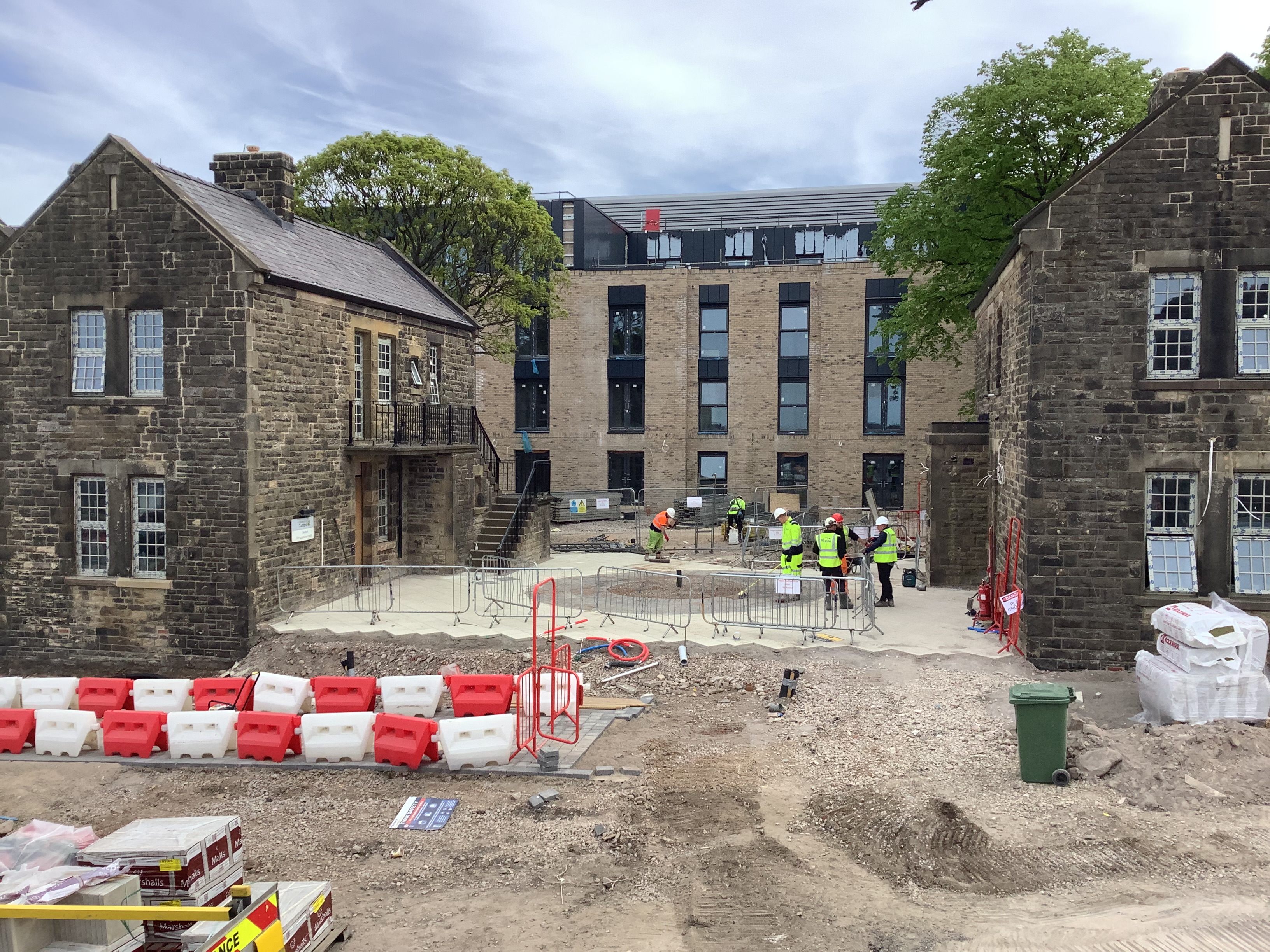
Work in progress at St Martin's Court Extra Care Scheme, Lancaster will open in Autumn 2025.
We have started an ambitious 10-year programme to refurbish all our independent living schemes to include decoration, flooring and furnishing where required, in consultation with tenants.
Investment in new homes
To tackle the shortage of high-quality, affordable homes, more homes are urgently needed.
It is our responsibility to continue providing high-quality homes of all kinds including social and Affordable Rent, shared ownership, homes for older people, and supported living for adults with a learning disability, autistic people and those with a mental health condition.
After successfully delivering nearly 1,000 homes through our previous five-year Development Strategy, we commenced delivery against our new strategy in April 2024. The new strategy will deliver a similar-scale programme of high-quality new homes.
This year we invested £36.7 million in new homes, of which £10.9 million came from Homes England and NHS England. A total of 146 homes were completed during the year, of which 79 were Affordable Rent, 8 were social rent, 29 were shared ownership and 30 were supported living.
We continue to work with Onward Homes to deliver against our strategic partnership grant funding commitment to Homes England and are on target to complete the delivery of more than 400 new grant-supported affordable homes by March 2028. During 2025/26 we expect to complete over 220 new homes.
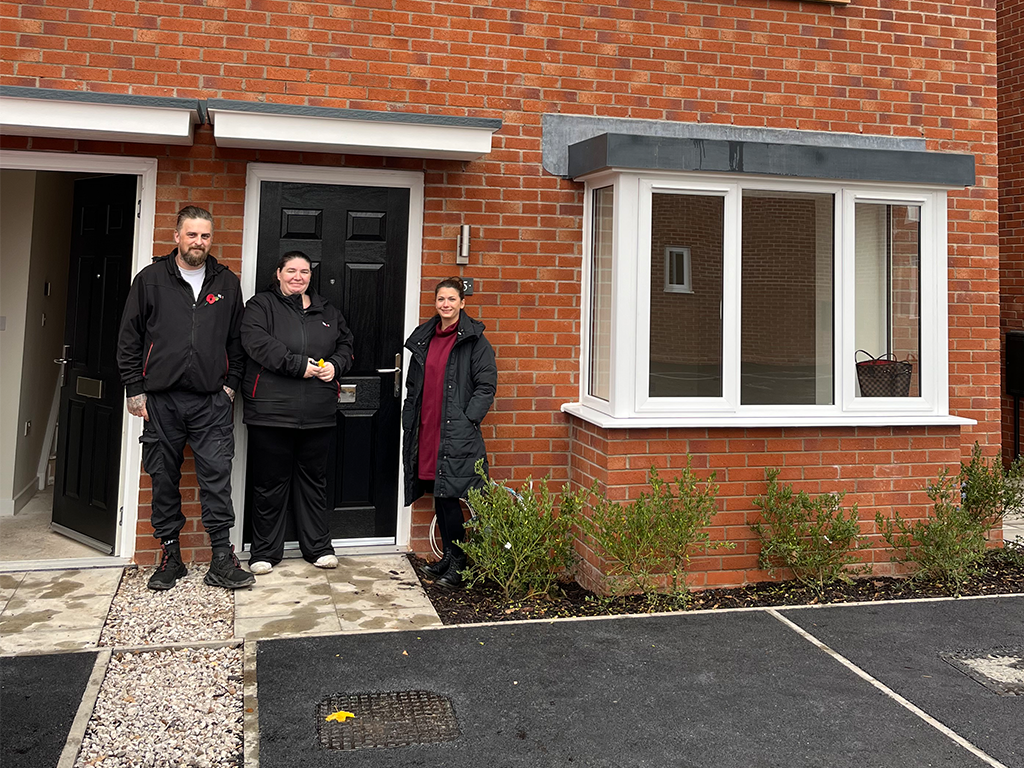
Mr and Mrs Cartwright, new tenants, being handed the keys to their new home by the area housing manager.
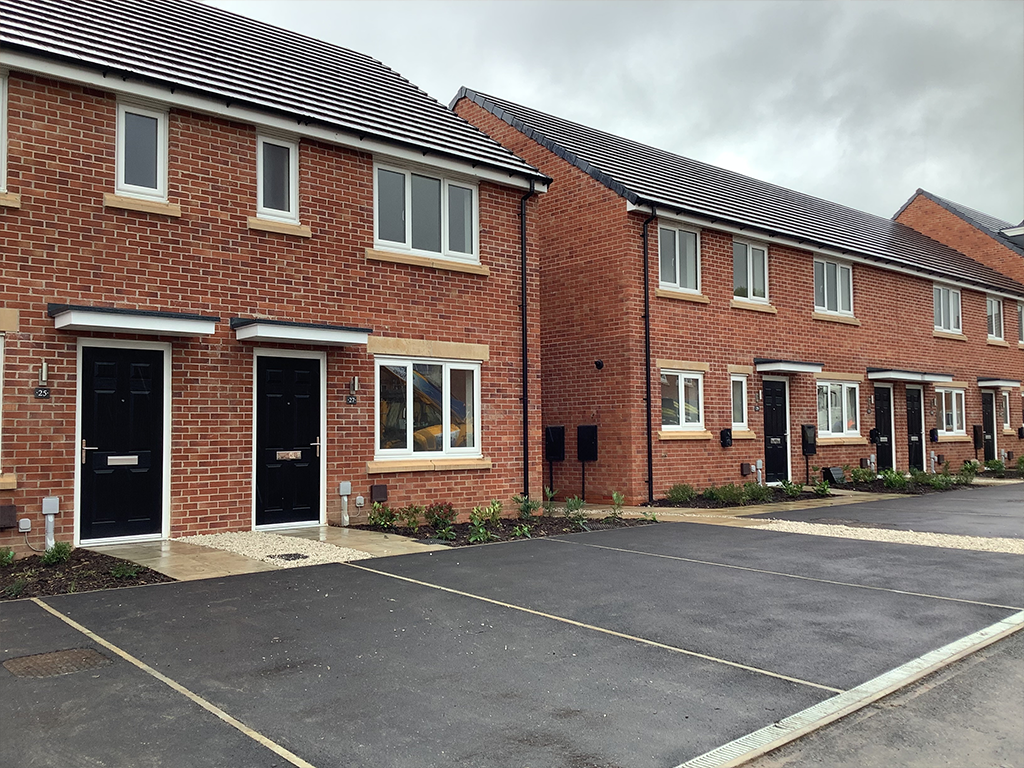
A row of newly built homes in Great Harwood.
This year we invested £36.7 million in new homes, of which £10.9 million came from Homes England and NHS England.
Real stories
St Martin's Court, Lancaster with Les Warren and Andy Sutherland
Looking forward
We recognise that good design is essential in creating high-quality, sustainable homes.
We review our design briefs across all tenures on an annual basis, incorporating reviews and feedback from tenants and owners to improve our offer.
The design briefs set out agreed design principles to ensure homes are consistent in quality, comply with requirements and represent value for money in both construction and in future maintenance.
We continue to source alternative grant contributions to maximise capital expenditure to invest in new homes.
In the future we aspire to increase the number of supported living homes that we deliver through our capital programme. We have also re-commenced delivery of these homes through a leased model which we will continue to develop in the future.
All our new-build homes are designed to be energy efficient. This is based on a fabric-first approach, but we are incorporating technologies into our homes wherever reasonably practicable and where there is clear economic benefit, including in remodelled and refurbished supported living homes.
Safe and sound homes
We take our responsibility as a social housing provider seriously, and our top priority is providing our tenants with safe, high quality, and healthy homes.
We invest around £7 million every year to ensure that our homes comply with strict health and safety standards. Throughout the year, we conducted 574 fire risk assessments, 6,987 gas safety checks, 2,040 electrical checks, 62 asbestos inspections, and 481 water hygiene risk assessments.
This year, we completed over 2,000 stock condition surveys, recording the age of the main property components. These surveys allowed us to identify and rectify any hazards we found under the Housing Health and Safety Rating System.
They also helped us pinpoint properties failing the Decent Homes Standard, so we could complete any necessary repairs or investments to improve them. As of 31 March 2025, only 0.1% of our properties failed this standard, and every property has a plan to improve it.
During the year, we proudly received a RoSPA Gold Medal and our sixth consecutive Gold Award. The Gold Medal is awarded to organisations that have received the RoSPA Gold Award for between five and nine consecutive years.
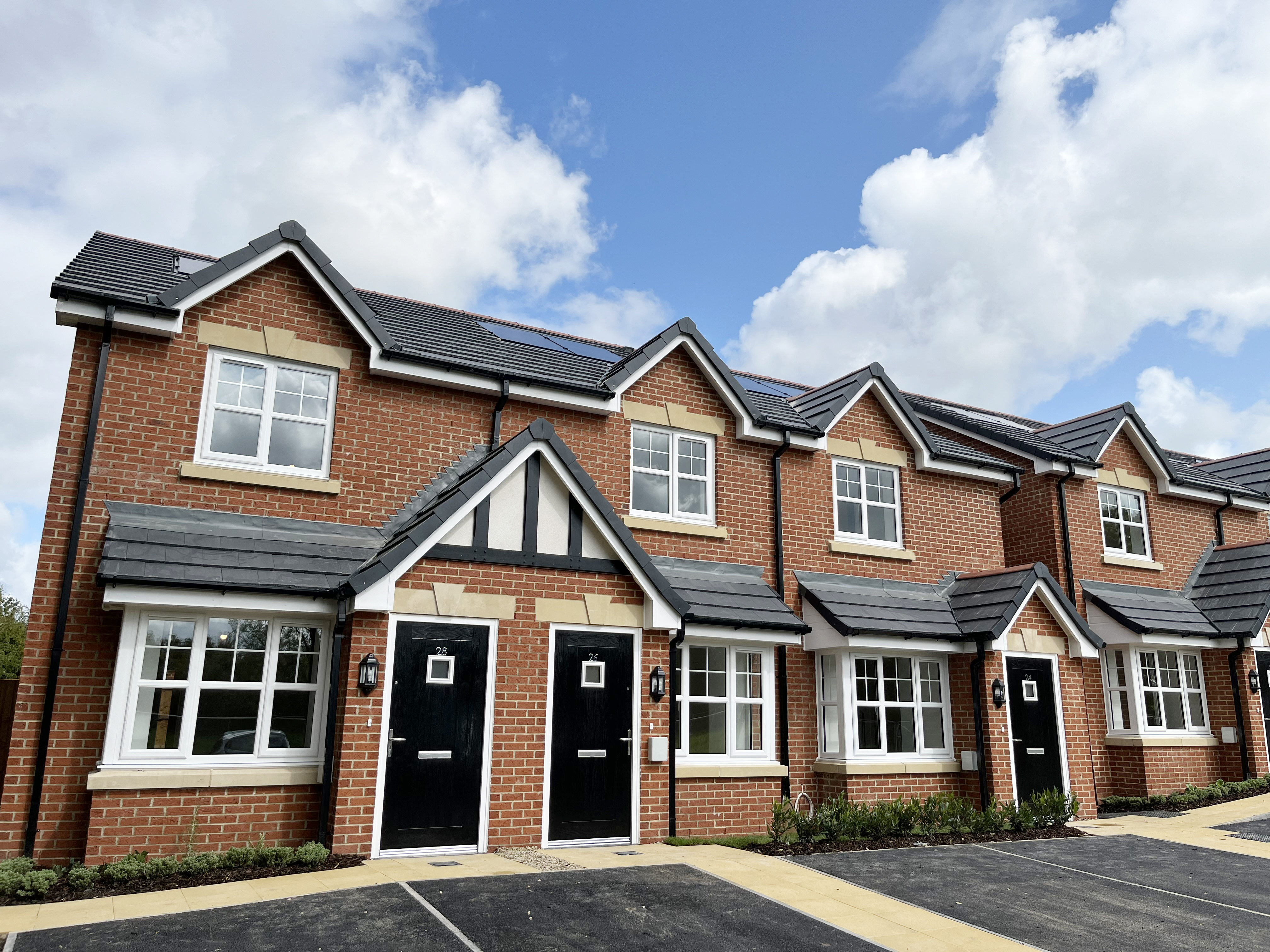
Newly built homes in Euxton, providing safe and secure housing for local families.
We invest around £7 million every year to ensure that our homes comply with strict health and safety standards.
Allocations and lettings
We offer a range of homes to suit different needs, including affordable homes and independent living schemes for people aged over 55. Most of our homes are allocated through local letting schemes ensuring tenants have a choice in their home and location. In the past year, we provided 421 new tenants with a secure and safe home, with a tenant satisfaction rate of 93.6%, exceeding the target of 92%.
Allocation and sign-ups are managed by local Area Housing Teams, with shortlisting and tenant assessments completed via the Tenancy Sustainability Service. This service supports new and existing tenants with budgeting, benefits, and wellbeing, working closely with partners like our own charity, Key Unlocking Futures.
The sign-up process includes a detailed explanation of obligations and a new tenant visit within the first four weeks to address queries, set up utilities, arrange support, and handle any initial issues like repairs or neighbour concerns.
For our supported living tenants, referrals are received through adult social care and commissioned through the local authority. Over the year we granted 307 new tenancies to adults with support needs, enabling them to live independently in their own homes with the support they need.
Real stories
Meet Shireen
Managing rent arrears and void rent loss
This year, rent arrears for the Group improved significantly, with current tenant arrears at 4.4% (target: 6%) and former tenant arrears at 0.8% (target: 0.8%). Tenant satisfaction with the arrears process was above target at 88.9% (target: 85%). Void rent loss met its target at 7%. Our rent arrears for our non-specialised supported housing improved significantly.
Timely rent collection is essential, and we are committed to supporting tenants facing financial challenges. Our person-centred approach to rent collection has had a positive impact both on income collection and tenancy sustainability, with fewer evictions taking place due to non-payment of rent. Our Tenancy Sustainability Team helps with budgeting, debt management, and benefits. Additionally, our 'Preferred Landlord Status' facilitates swift Universal Credit processing.
Managing empty homes remains a priority, recognising the need for affordable housing.
General needs relet performance was 35 days against a target of 24 days. Turnover of our homes was 8.9% against a target of 10%, and for RWP supported living, it was 8.6% against a target of 10%, which is positive overall.
The specialist nature of our RWP supported living portfolio contributes significantly to the time it takes us to relet properties. One of the main factors is that commissioners and support providers usually must identify prospective tenants and approach RWP. Other delays to relets can be around compatibility of tenants for shared schemes.
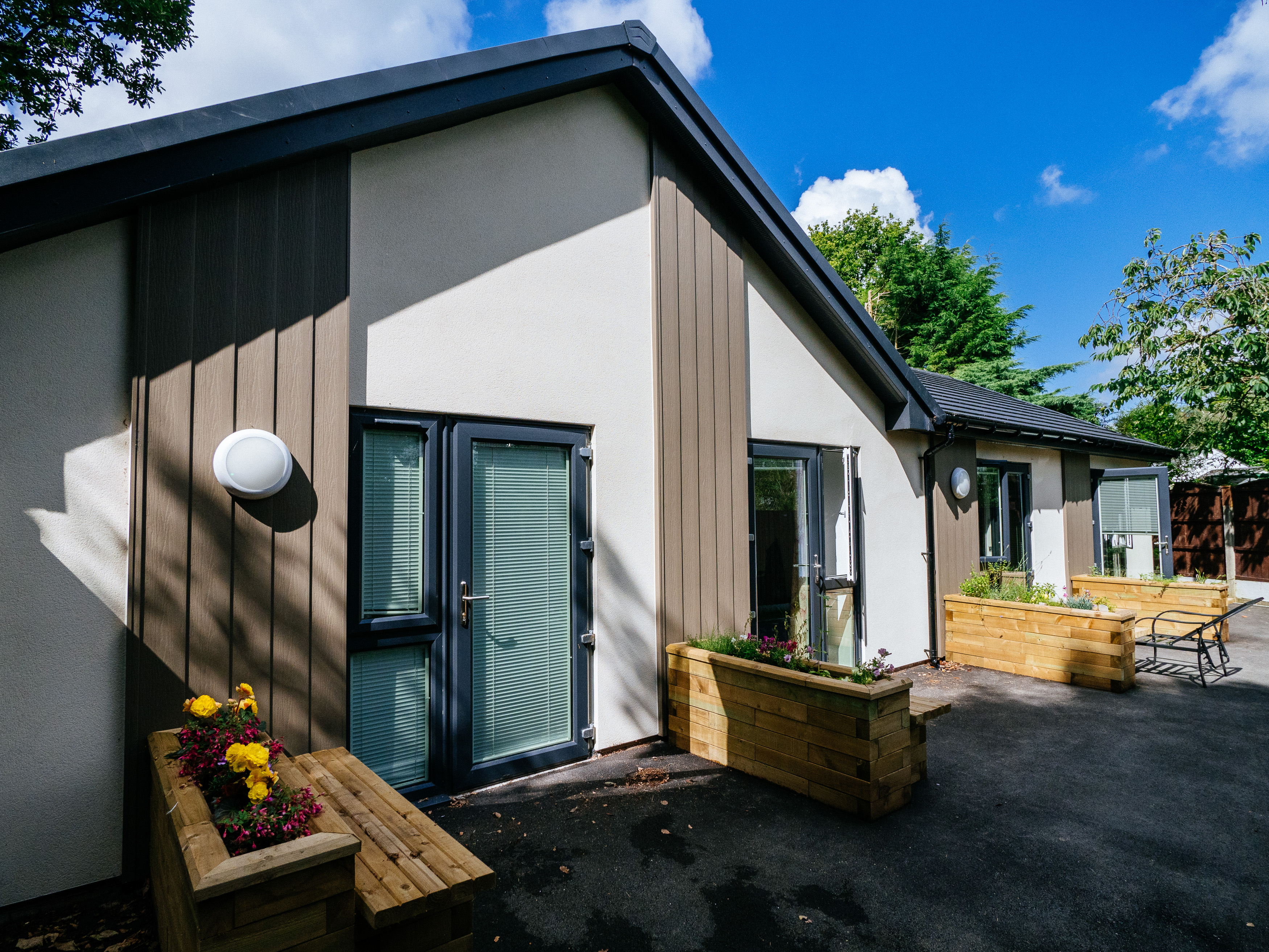
A peaceful rear garden at RWP Liverpool Road, one of our supported living homes.
Looking forward
As part of our commitment to listening and acting on tenant feedback, we will complete a Tenant Journey to improve the tenancy sign-up process.
This project is scrutinising every point of contact between tenants and the organisation, starting from when tenants first reach out to when they settle into their home, to improve customer experience, drive efficiencies, and provide insight that can in turn improve services.
Real stories
Mr and Mrs B, both in poor health, lived in an unsuitable first-floor private rented flat. Mr B, profoundly deaf, and Mrs B struggled with basic tasks such as bathing her husband.
Isolated and without adequate facilities, they had been looking for a new home on My Home Choice for years without success. The Area Housing Team assisted in ensuring the couple had the correct medical banding and helped them in securing a suitable ground-floor flat with level access and a wet room.
Upon moving in, Mr B rediscovered his passion for cooking, lifting his spirits significantly, while Mrs B expressed profound joy, crediting the new flat with transforming their lives. The area housing officer provided ongoing support, which Mrs B deeply appreciated.
Mrs B left a heartfelt compliment, expressing gratitude for the swift allocation and exceptional assistance from the team, noting how their new home dramatically improved their living conditions.
Progress Living: providing high-quality housing for key workers in Lincolnshire
Progress Living is the Group’s keyworker accommodation scheme, which works in partnership with United Lincolnshire Hospitals Trust to support the NHS in providing high-quality, on-site housing for professionals, medical students, hospital visitors and outpatients. We provide 573 purpose-built units across three hospital sites in Lincoln, Boston and Grantham.
2,329 repairs were completed at the scheme, achieving 100% on-time completion of emergency and urgent repairs and 99.2% on-time completion of routine repairs.
A planned programme of refurbishments throughout the accommodation saw a capital investment of £215,000 in improvements including flooring and furnishings, £70,000 on painting and decorating, and £168,000 on 19 kitchen replacements.
During the programme, we invited tenants to two open days to view the improvements, meet the team and influence future improvements.
As a direct result of tenant feedback, we have improved our laundry facilities with new washers and dryers installed that accept card payments and can be operated using an app.
We continue to work closely with the Trust to meet housing need, including the continued support of the Trust’s successful international recruitment drive as it looks to recruit hard-to-fill vacancies. This has included working with the Trust to meet tenants’ needs with regard to equality and diversity, including providing single-sex accommodation and helping the international recruits to settle in on their arrival in a new country.
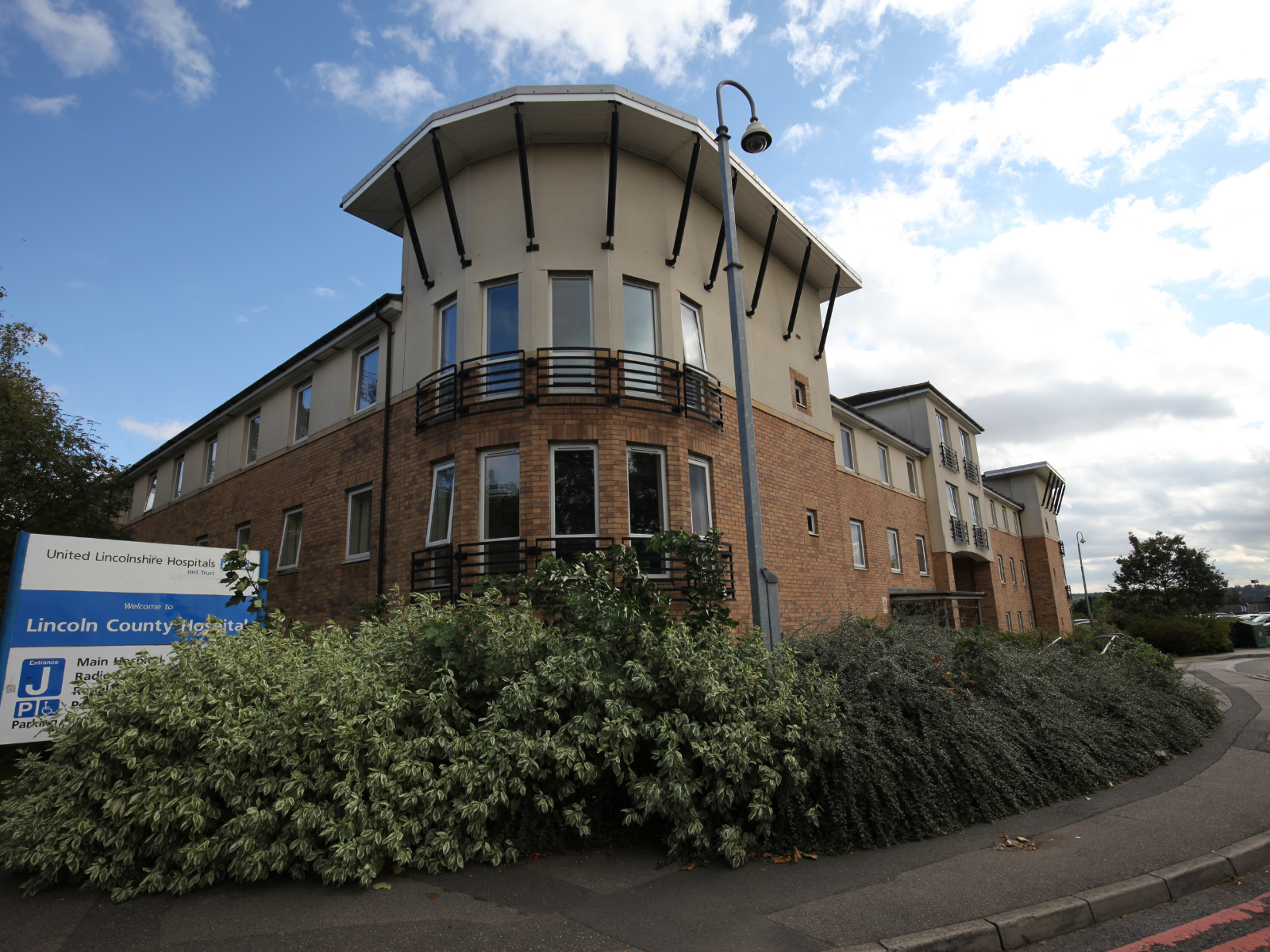
Homes by tenancy type

General needs
5,369

Supported living
3,855

Independent living
1,200

Keyworker
574

LiLAC supported living
313

Shared ownership
382

Leasehold
201

Homelessness unit
37

Supported shared ownership
24

Women’s refuge
11

Single homeless
32
Progress in numbers
£41.8m
invested in repairs, maintenance and energy upgrades
146
new homes delivered across all tenures
93%
satisfaction with Healthy Homes works
88.4%
satisfaction with repairs service
421
new tenancies started this year
2,860
damp and mould inspections completed
